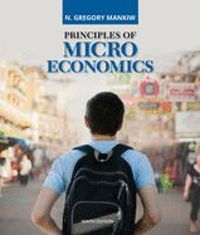Question
1/ Premise: Suppose Eric bought a ticket to theLakersgame for $100, and that he is excited to go (because theLakersare awesome, and the seats are
1/ Premise: Suppose Eric bought a ticket to theLakersgame for $100, and that he is excited to go (because theLakersare awesome, and the seats are great). Eric values seeing theLakers, with seats in that section, at $150. Now suppose that Eric lost the tickets. He was driving back from Las Vegas, holding them out the window to brag to the drivers in the other cars, when they blew out of his hands. He looked and looked, but they're gone (drat!).
Eric has come to you, since he knows you're interested in economics, and asks what he should do? Should he buy another ticket? (suppose that Eric's financial situation has not changed since he originally bought theLakerstickets, and that tickets with the exact same value to Eric are available at the exact same price that he paid originally.)
2/ Suppose the U.S. is engaging with China in a discussion of trade policies. The Chinese diplomat explains to their U.S. counterpart that labor in China is less expensive than in the U.S., so the U.S. consumer would benefit from cheaper products produced in China.The U.S. diplomat counters this argument, stating that trade is causing wages in the U.S. to decline.
Support one or both of the diplomats' arguments with key terms.
Step by Step Solution
There are 3 Steps involved in it
Step: 1

Get Instant Access to Expert-Tailored Solutions
See step-by-step solutions with expert insights and AI powered tools for academic success
Step: 2

Step: 3

Ace Your Homework with AI
Get the answers you need in no time with our AI-driven, step-by-step assistance
Get Started


